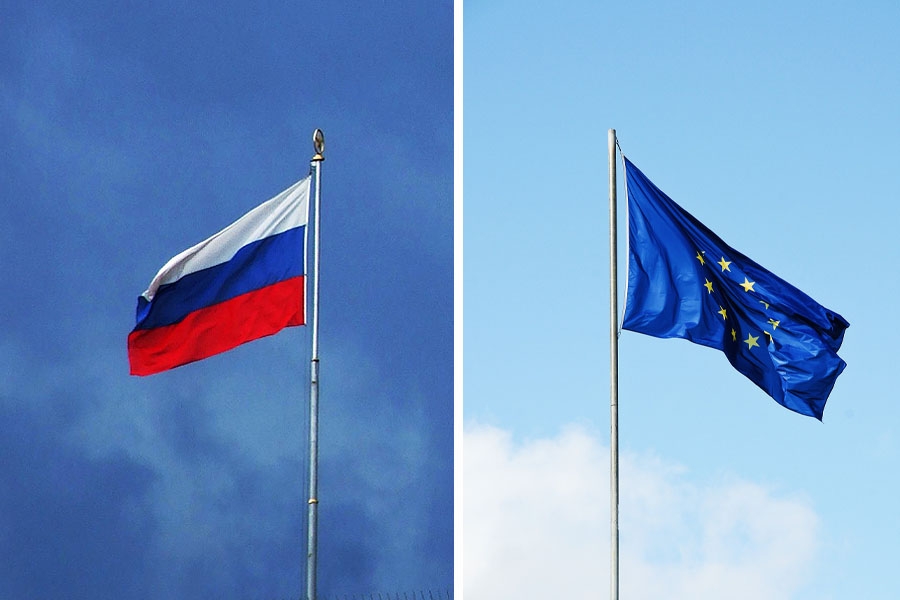
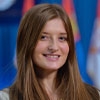
We continue the series of articles in which we analyze the foreign policy orientations of Serbian citizens
From 1944 until today, public opinion regarding foreign policy orientations in Yugoslavia and Serbia was created and changed by the ruling parties, according to their policies and interests. This is also shown by data on public opinion surveys, which are available from the 1960s to the present day. If the parties in power have an interest, by directing the media narratives in just a few months, they can lead to visible changes in the foreign policy attitudes of citizens, with the fact that there will always remain a part of those who will maintain their unwavering stance, says historian Slobodan Markovic. That principle, if the authorities wanted it, could be applied even now, when, according to the Demostat survey, more than half of citizens do not want to join the EU, 80 percent would not impose sanctions on Russia and the same percentage would not give up at any cost. from military neutrality. Professor Sinisa Atlagic of the Faculty of Political Sciences does not agree with this, saying that public opinion is unstable, but that it cannot be changed relatively quickly when it comes to key issues, such as the EU, Kosovo, and Metohija or Russia. The program director of N1 television Igor Bozic believes that the president of the country, no matter how much power he has, would not be easy to quickly change the foreign policy course and that the essential task of the politicians is to clearly define the direction in which Serbia is going.
Public opinion surveys in Yugoslavia and Serbia, which we can follow since the 1960s, show that public opinion on foreign policy almost always followed what was defined as the official foreign policy position, a historian and professor at the Faculty of Political Science told Demostat. science, Slobodan Markovic. This means that public opinion was created by the Union of Communists of Yugoslavia until 1990, the Socialist Party of Serbia from 1990 to 2000, factions of DOS from 2000 to 2012, and SNS from 2012 onwards. For the last ten years, propaganda has been conducted in Serbia in which, as Markovic notes, three important features can be observed - Serbia is celebrated, which is portrayed as disproportionately important about its size and economic strength, and the West is constantly contested and portrayed as part of some conspiracy against our country, and Russia presents itself as the defender of Serbia and Orthodoxy. This propaganda is persistent and creates the illusion of stable support for Russia, while the anti-Western campaign has been intensifying since 2012. However, as Markovic claims, any change in foreign policy orientation would quickly affect public opinion.
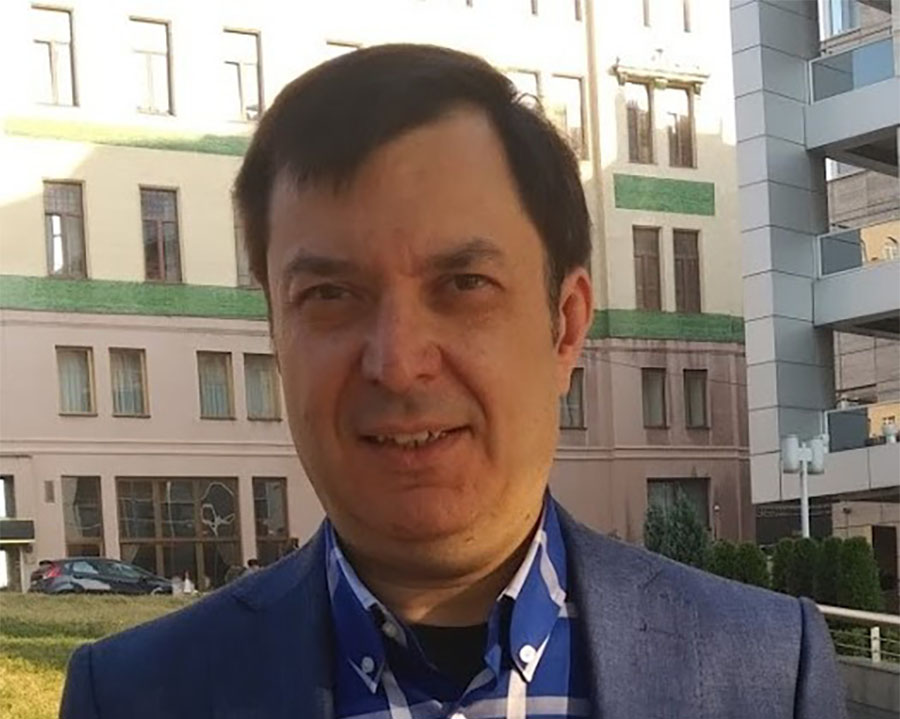
Slobodan Markovi?/Foto: Ustupljena fotografija
When measuring attitudes, citizens are surveyed on support scales and a distinction is made between those who fully and those who partially support a major power or alliance. Hard supporters will remain mostly in the same positions, and soft supporters will flow in the direction towards which the media narratives direct them, explains Markovic.
"Thats why a change in the states foreign policy position would have immediate and visible results after only a few months, even though there always remains a hard core of those citizens who have firmly built foreign policy positions," Markovic is convinced. That is why the position of SNS and its president Aleksandar Vucic, as the dominant figures of the ruling party, is key, Markovic points out.
In all this, as he states, it is necessary to take into account that all the Orthodox countries in Southeast Europe, as well as Hungary and Slovakia, have a more favorable attitude towards Russia than the countries of Western and Northern Europe. This means that the attitude of the citizens of Serbia towards Russia would certainly be less negative than in the West, even if there was a radical change in the foreign policy direction because the attitudes towards Russia are still less favorable in Greece, Bulgaria, or North Macedonia than in Sweden, Poland or the Baltic states. But, although more moderate than in the West, the attitudes of these predominantly Orthodox countries are more critically oriented towards Russia than is the case in Serbia. This is also shown by the comparative table on responsibility for the current situation in Ukraine in Demostats research.
"Everything points to the fact that in the event of a change in the direction of foreign policy in Serbia, the attitude of the citizens of Serbia would be similar to that in Bulgaria and Greece." But, even then, he would certainly be more sympathetic to Russia than is the case in the West", concludes Markovic.
The pro-Russian narrative in Serbia has been on the rise since the beginning of 2006 when Russia returned to the Balkans as part of President Vladimir Putins broader foreign policy aspirations, says Markovic. Since then, Russia has appeared as the protector of Resolution 1244 of the United Nations, and since February 2008, as a country ready to use the veto in the event of an attempt for Kosovo to become a member of the UN.
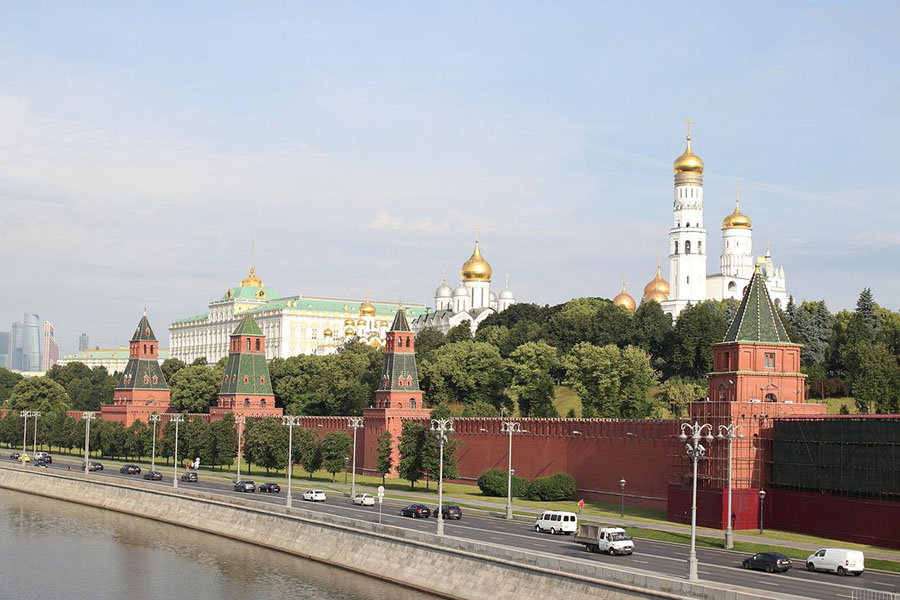
Foto: Pixabay
"Only on that one issue did Russia build the image of a great friend of Serbia." "The phenomenon of pro-Russian attitude has existed in Serbia for the last 15 years, and it is almost exclusively related to the Kosovo issue," emphasizes Markovic. He also adds that from the beginning of the nineties until approximately 2005, the most popular foreign country in Serbia was Greece and that since then Russia has taken over the primacy, primarily because of its attitude towards Kosovo.
He claims that Serbias closeness to Russia is one of the modern political myths. At the state level, as he explains, from the independence of Serbia in 1878 until the end of the 20th century, that is, in a period of 120 years, relations between the states were close only for 13 years (1878-80, 1908-1917, 1944-47/48). In 1881, under the Obrenovic dynasty, Serbia renounced the independent conduct of foreign policy in favor of Austria-Hungary. The Kingdom of Yugoslavia was the last country in the world to recognize the Soviet Union, only in June 1940, and communist Yugoslavia built its independence on resistance to the USSR. Milosevic also had very bad relations with Russia under Yeltsin. At the same time, the public was much more inclined towards Russia than the state.
When it comes to the anatomy of Russophilia in Serbia, Markovic believes that there is no essential difference between the pro-Putin and pro-Russian positions in the political sense, because the political concept of Russia is always personalized.
"Russia was more or less an autocracy throughout the 20th century, except the 1990s. It has been an autocracy again since the beginning of the 21st century. At the beginning of the 20th century, Russophiles in Serbia loved the Tsar, in 1948 they loved Stalin, and today they love Putin", the professor is clear.
A special phenomenon that is not limited only to Serbia is cultural Russophilia, which can be observed together with, but also separately from, the political one. The respect for Russian culture, art, and science in Serbia has to do with the great cultural influence of Russian emigration on Serbian culture between the two world wars, but this can also be seen in Greece and Bulgaria, and, in a way, in Germany and France, says the professor. "It would be pointless to question the respect of Russian culture because it is undoubtedly a culture that has achieved great achievements," adds Markovic.
Speaking about anti-Western propaganda, Markovic says that it has been intensifying in Serbia from 2012-2014. years. As he states, since 2012, Russia has been implementing a soft power strategy, and since the annexation of Crimea in 2014, it has been very actively working on its promotion around the world, especially in Serbia. According to Markovic, state commemorations on the occasion of the NATO intervention, which Serbia has been organizing since 2015, also have an undertone of anti-Westernism in Serbia. Also, the fact that the dominant political party in Serbia, the SNS, was born on the wave of nationalism and belongs to conservative populist parties gives an additional wind to the nationalist narratives that fit the narratives of anti-Westernism and pro-Russian attitude. However, as Markovic adds, SNSs membership in the Alliance of European Peoples Parties (EPP) can also act in the direction of harmonizing Serbias foreign policy with the EU, while part of the partys leadership is inclined to do so.
Markovic: Citizens attitudes are a reflection of what they read and hear in the media
Demostats research showed that the attitude of public opinion towards Serbias entry into the EU is the same as the attitude of the authorities and pro-government media towards the European Union. Markovi? says that the same pattern can be seen in public opinion surveys in the 1970s when attitudes were only a reflection of what citizens read, watched, and listened to in the media, so the popularity of countries depended on which non-aligned or socialist leader had recently visited Belgrade or which country Tito visited.
"For example, in a 1972 survey among Belgrade residents over the age of 17, Indira Gandhi, the Prime Minister of India, was the most popular leader in the world." Tito visited India in October 1971, and in July 1972 the President of India visited the SFRY. Also, in May 1972, Tito met with Romanian leader Ceausescu on the occasion of the completion of the Djerdap hydroelectric plant, and in June he was a guest of Brezhnev in Moscow. After that, research was done, and then in the research, you get the following order of the most popular countries in the world for Belgraders: USSR - 26 percent, Romania - 15 percent, India - 14 percent," says Markovic.
The growth of Angela Merkels popularity in Serbia was similar to the time when Prime Minister and later President of Serbia Aleksandar Vucic bragged about his meetings with her.
Markovic concludes that in public opinion surveys in Serbia for years there has been a part of respondents who answer that they are for the EU and Russia at the same time. According to him, this is the product of distortion carried out by a part of the media in Serbia. Information is transmitted selectively and part of the population does not understand that there is a contradiction between the two paths, because the situation in the world is not presented realistically and objectively in the majority of media in Serbia. To some extent, as he concludes, this is also a reflex of the long-standing state policy embodied in the slogan "Both Kosovo and Europe".
Atlagic: I do not expect a sudden turn in the relationship between the EU and Russia
Professor of the Faculty of Political Sciences Sinisa Atlagic believes that Aleksandar Vucic could only to some extent increase the favor of the Serbian public opinion towards the EU, stressing that it is a complex issue that does not concern only the power or impotence of Vucic as the president of the country. Atlagic states that Vucics enthusiasm regarding the EU was at its peak a few years ago and that this enthusiasm cannot now be the basis for effective political persuasion.
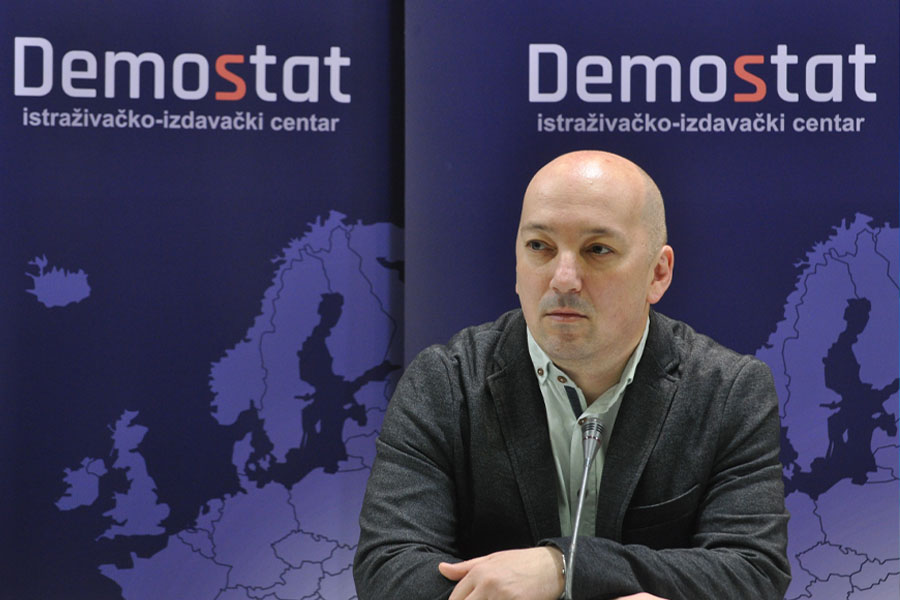
Siniša Atlagi?/Foto: Saša Lazarevi?
"This is a consequence, on the one hand, of his conclusions about global political events, therefore also within the EU, and on the other hand, the mood of domestic public opinion, with which, on this issue, he is not ready to go above and beyond because he would not have too many chances," he says. Atlagic.
He recalls the internal dialogue about Kosovo and Metohija, stating that Vucic himself said at some point that his idea did not receive significant support.
"Public opinion is unstable and can be changed relatively quickly, but not on issues such as, for example, those related to the EU, the status of Kosovo and Metohija or Russia," emphasizes Professor Atlagic.
He adds that citizens decisions regarding such issues are primarily influenced by the so-called long-term factors, primarily socialization factors, while situational factors such as political campaigns are of the second rank.
"Thats why I wouldnt underestimate citizens by talking about the fact that their views on fundamental issues can be quickly changed by starting a campaign in support of an issue," Atlagic points out.
He does not expect that there will be a sudden or significant turn regarding the issue of Serbias accession to the EU or the relationship with the Russian Federation.
"The attitude of citizens towards the EU is burdened by a relationship of mutual mistrust." The EU does not trust Serbia because of its relationship with Russia, and in Serbia, there is mistrust in connection with the EUs relationship with Kosovo and Metohija and, in general, its relationship with the Serbs since the breakup of the former Yugoslavia. And the stipulations regarding Russia only increase this mistrust. Finally, I think that the oversaturation of citizens with the issue of EU accession is also at work", he points out.
According to Atlagic, who teaches political communication and political marketing at the Faculty of Political Sciences, this is one of the biggest disadvantages of promoting such issues, because it counts on cumulative effects.
"I think that the peak in that sense was reached a long time ago and that is why the effects of the campaign, even Vucics, would not be great", he states.
Speaking about how public opinion is formed in Serbia, Atlagic explains that public space in our country is a field of specific configuration. Its center, as he says, is made up of government-controlled television channels, which are still the most used means of mass communication, and the cheap daily press. On the periphery is communication through the Internet and periodicals.
"The chance of a certain discourse becoming popular depends, first of all, on how much it is represented in the center of the public sphere." This is how public opinion is formed in Serbia", concludes Atlagic.
The program director of N1 television, Igor Bozic, is not sure that a change in public opinion regarding foreign policy is possible in the short term. He believes that it is essentially a big task for politicians to clearly define the policy where Serbia is moving, especially at this moment, when in Europe we have dissonant tones and a not-so-ideal situation as it was twenty years ago.
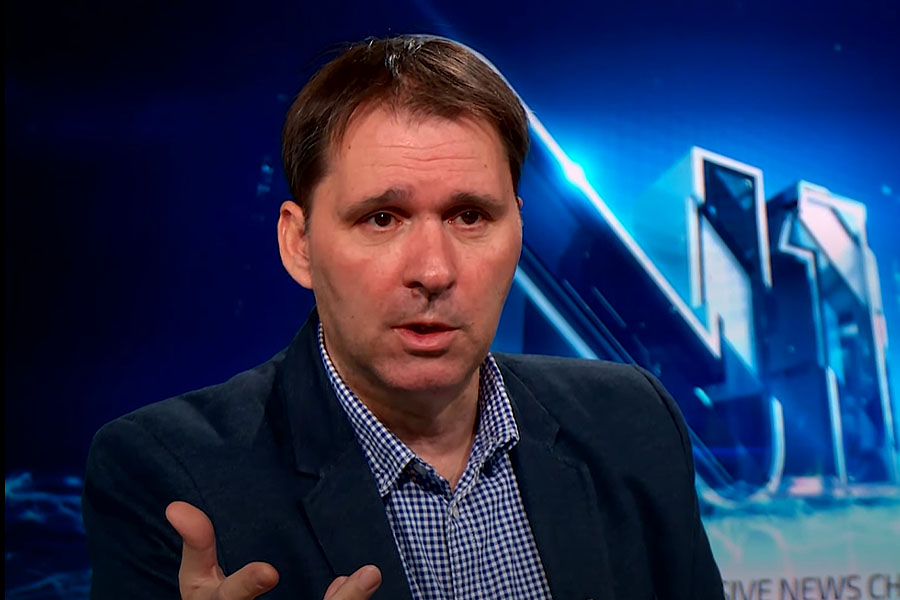
Igor Boži?/Foto: Printscreen Youtube Nova S
"It is not simple, no matter what power Vucic has, to change course so easily, especially if you take into account that Vucic has been in power for ten years and that he is constantly pursuing a policy of sitting on at least three or four chairs if we look at the USA as a separate entity," he says. Christmas.
In this case, as he points out, it is necessary to explain to the citizens the advantages and disadvantages of one or the other road. The biggest responsibility is certainly on Vucic, who has taken over all the power in Serbia, and Bozic believes that, if the president decides to "break", he will seek some kind of broader consensus.
Bozic, however, states that to break relations with Russia, that is, with Putin, something should happen that would justify a turn in policy towards Europe, but that is not happening. That is why he is not sure that Vucic is ready to take risks because, according to public opinion surveys, the one who ends cooperation with Russia would experience a drop in popularity.
Bozic also adds that Vucic has persistently sent different messages about Europe.
"He tells us that Europe is the way, but he always adds that Europe asks us to recognize Kosovo, that he is not such a friend as some others." I have the impression that what he says, he says only in a way that the citizens would like to see, and then in conversations with European politicians, he has a different approach. He speaks with awe to foreign officials, but to the citizens themselves he presents himself as someone who snapped, showed his teeth to that Europe that keeps asking him for something, and he doesnt do it by accident because thats what people want to hear. After all, it seems to them that Putin does the same," concludes Bozic.
He adds that Vucic, on the other hand, is aware that Serbia is economically dependent on Europe and that it would not be able to maintain a healthy economy if it did not cooperate with the EU.
According to him, the relationship between Russia and Russian President Vladimir Putin has been built for years.
"I have the impression that all of this has been deeply politicized in Serbia for several decades now because the citizens of Serbia perceive themselves as victims, ever since the wars of the 1990s and then the bombings. And then in Russia and Putin, they see a kind of resistance to Western civilization, which is a problem when we look at the direction in which Serbia is moving," says Bozic.
In all societies there are issues that are rather being skipped. Certain...
The neoliberal path, started in 2001, has led to especially bad results in Serbi...
For centuries, the region was subsumed within the Ottoman and Hungarian Empires,...
"Serbia has returned to the systemic and anti-systemic position of the political...
In reality, Serbia is closer than ever to NATO. In the course of the last five y...